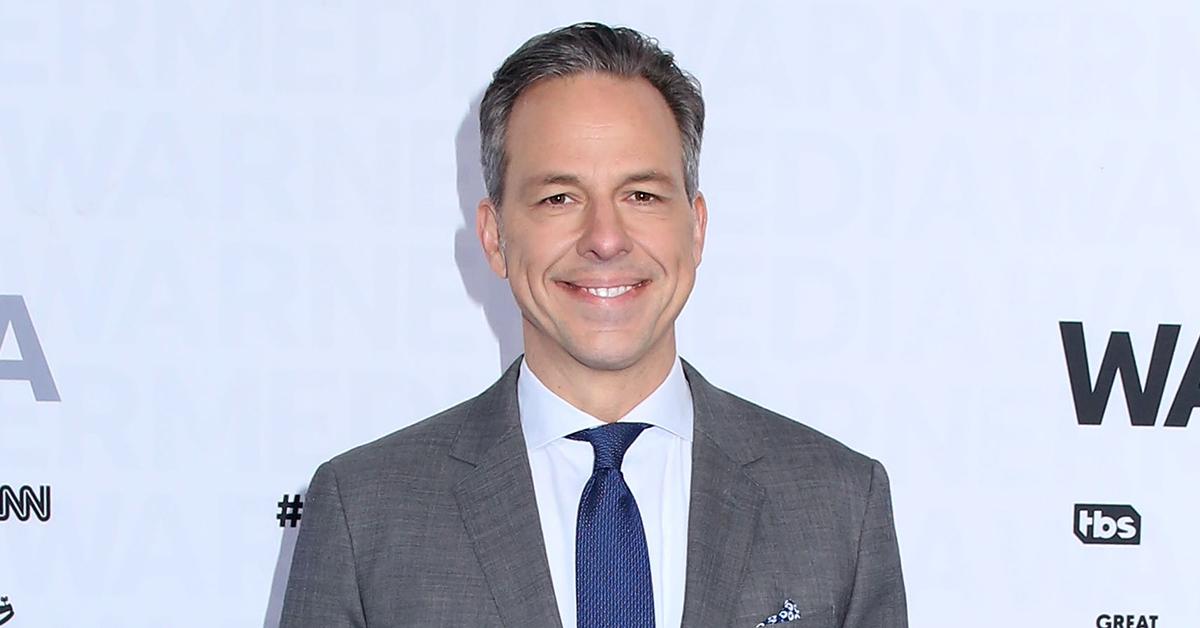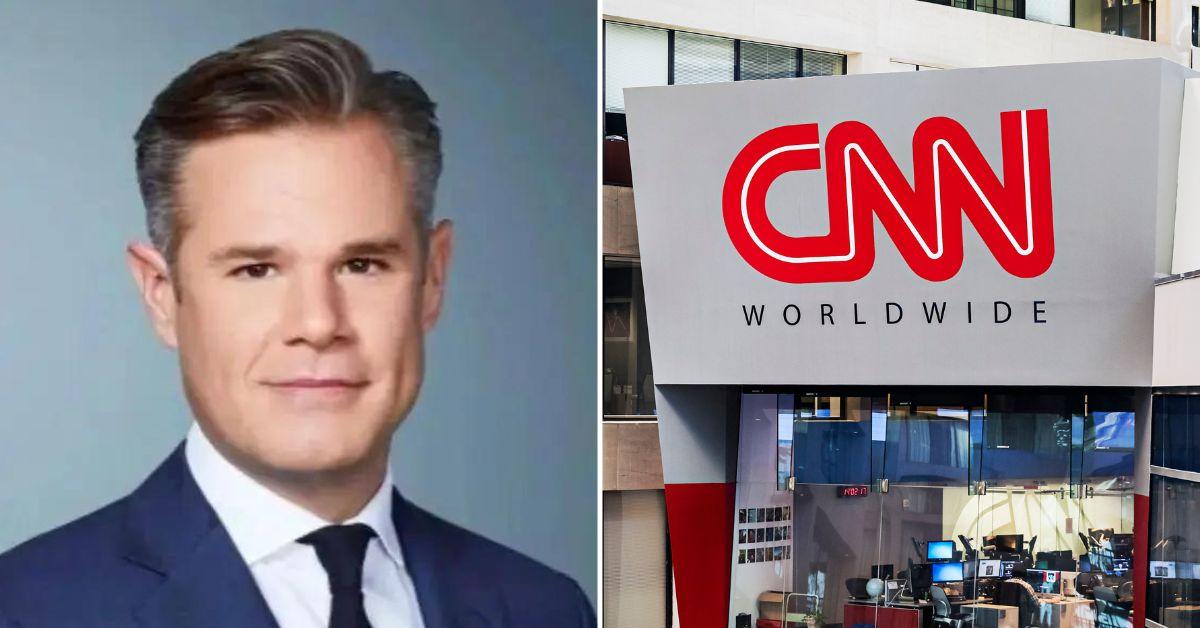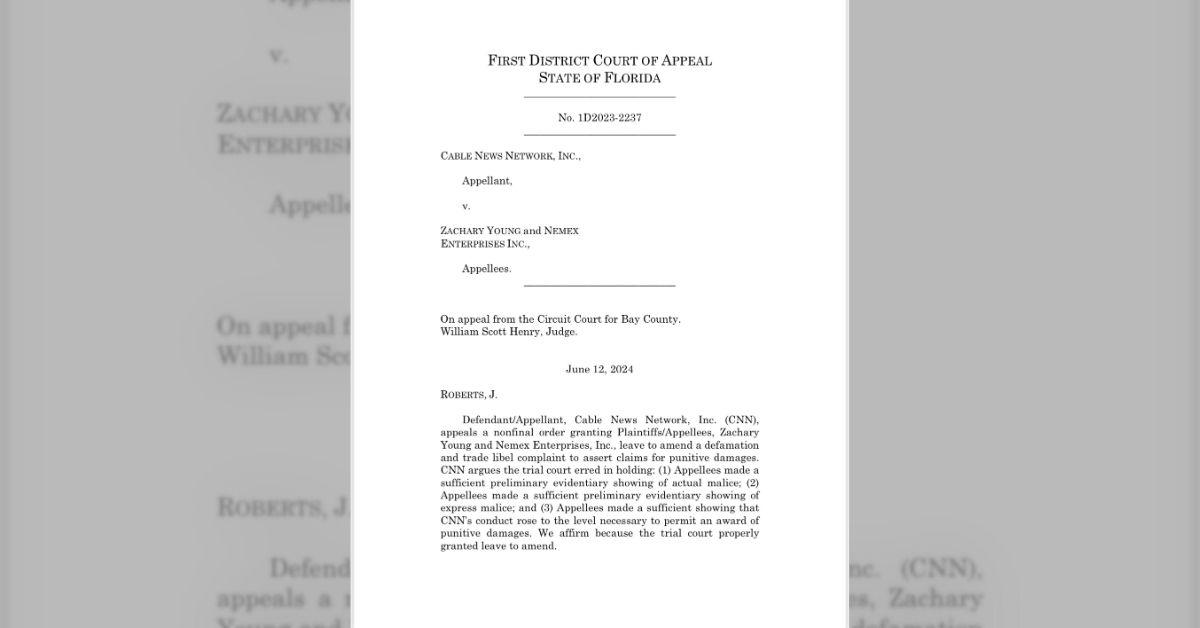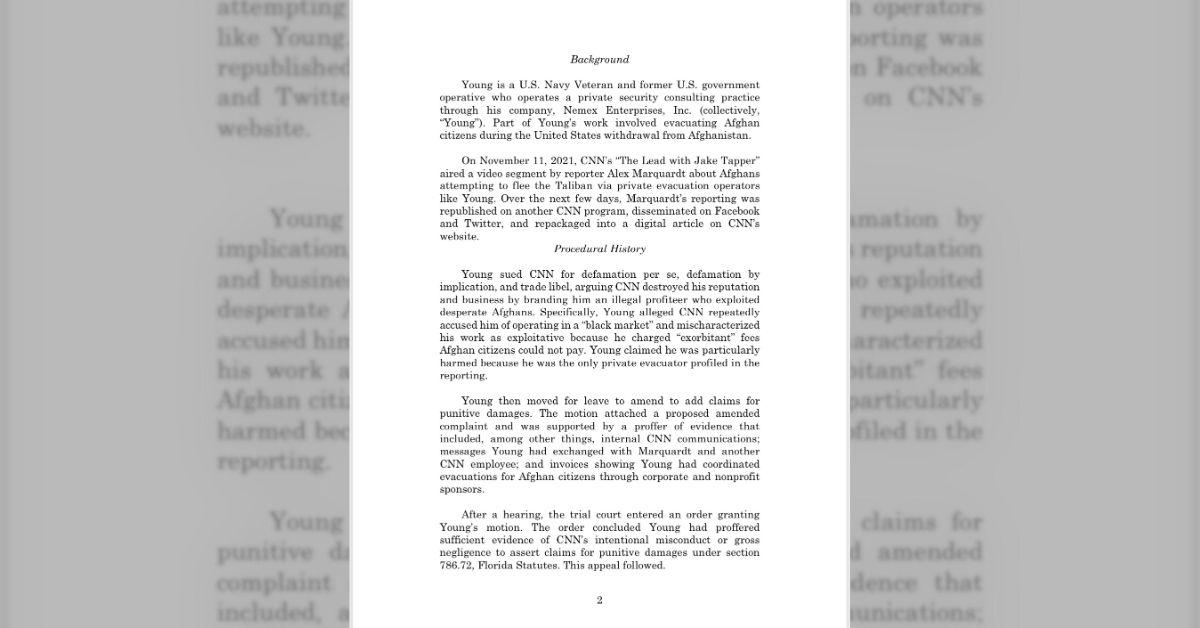CNN Accused of Deliberately Destroying ‘Troves’ of Evidence in $1 Billion Defamation War

The vet is suing CNN for alleged defamation over a November 2021 report.
July 25 2024, Published 8:17 p.m. ET
CNN is being accused of deliberately destroying "troves" of evidence in a $1 billion defamation war with a man alleging the struggling network pushed a "false narrative" suggesting he exploited "desperate Afghans on an illegal market".
In a recent court filing obtained by RadarOnline.com, lawyers for Navy veteran Zachary Young claim CNN deleted "troves of data" relevant to the case, knowing it "had a duty to preserve" the information.

The case is centered around a segment that aired during a November 2021 episode of 'The Lead With Jake Tapper'.
The allegations stem from a November 2021 episode of The Lead With Jake Tapper that discussed Young's efforts to evacuate people from Afghanistan during the Taliban's resurgence. He complained that in the resulting report, "defamatory statements on black markets" were "emblazoned across" photos of his LinkedIn messages "and over a photograph of Young's face".
The lawsuit filed in Florida alleges: "CNN published defamatory statements that harmed Mr. Young, ruined his reputation, and destroyed his business."
The segment re-aired on other shows, "both domestically and internationally", and afterward, the network "aggressively shared these same statements across numerous social medial platforms like X, Facebook, and Instagram", the suit claimed.
Young's recent filing added: "Unfortunately, after learning it was about to get sued in this case, CNN deleted these posts...Specifically, it destroyed the analytics that would have shown how many saw the posts, how they 'reacted' to the posts, and even deleted the majority of comments the public left on their posts."

Alex Marquardt has announced he is leaving CNN.
This "resulted in the irreversible loss of critical information regarding the reach, impact, and interpretation of CNN's defamatory statements," per the document.
"Knowing litigation was imminent, CNN had a duty to preserve the posts in their entirety, including al comments, replies, analytics, metadata, and engagement data. It did not."
Young's attorneys said the network's "failure to preserve key evidence" has "undermined [Young's] ability to present a fully informed case", and they asked the court to "inform the jury of this lost evidence and permit them to infer it would have been unfavorable to CNN".
CNN issued a correction five months after the broadcast saying the term "black market" was used "in error".

A military vet alleged CNN 'published defamatory statements' that ruined his reputation.
CNN chief national security correspondent Alex Marquardt, who Young's lawyers described as the story's "author and architect", also appeared in the segment and re-posted clips on social media he allegedly deleted "long after this lawsuit was filed".
As RadarOnline.com reported, an unredacted transcript in the case file showed that in a deposition, Marquardt testified he had "no evidence" linking Young to illegal activity before airing the report.
When asked, "Did your reporting ever discover anything illegal that was going on with regards to the evacuation process?" Marquardt responded: "No, it didn't", according to the document filed by Young's lawyers.

CNN "aggressively shared" the allegedly defamatory statements "across numerous social medial platforms", according to Young's lawyers.
He explained during the deposition that he and the show's producers wanted to do the story as a way of "exposing" Young for "taking part in this black market that was exploiting Afghans at their most vulnerable time."
Text messages exposed during the court battle have also revealed show staffers called Young a “s---bag” and “a------” while conceding the story was “full of holes like Swiss cheese" and "very much not ready for prime time".
The network said it did not intend to cause harm, argued the language used was either opinion or ambiguous, and called the internal communications “journalistic bravado that reflected a sincere belief in the reporting.”

The company's lawyers also recently moved to block Young's bid to depose host Jake Tapper in the case, saying that doing so would cause “annoyance and embarrassment” to Tapper while “providing little useful information.”
Young's attorneys have predicted they could win up to a billion dollars if the court agrees "CNN published defamatory statements that harmed Mr. Young, ruined his reputation, and destroyed his business."
The next hearing is scheduled for August 12, and a civil jury trial is set to begin in January 2025.
Powered by RedCircle


